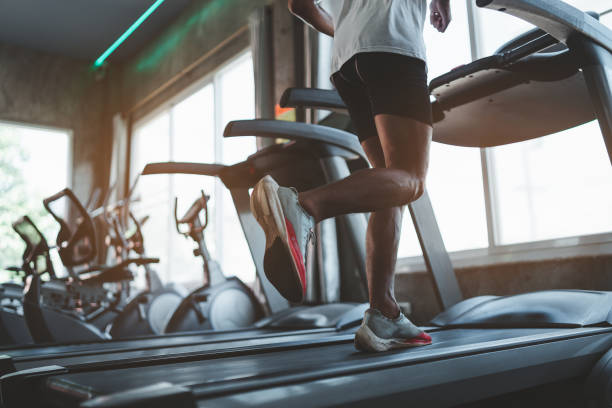
Why Adult Males Need Daily Health Tips
Men’s health is often overlooked until a serious issue arises. Unlike women, men are less likely to visit a doctor for routine checkups or talk about health concerns. As men age, they become more prone to chronic diseases like heart disease, diabetes, prostate issues, and mental health struggles.
The good news? Many of these risks can be significantly reduced—or even prevented—by adopting a few smart, daily habits. In this guide, you’ll find 15 powerful health tips designed specifically for adult males to enhance energy, boost immunity, and extend lifespan.
1. Prioritize Quality Sleep Every Night
Benefits of 7–9 Hours of Sleep
Lack of sleep messes with your testosterone levels, immune system, and cognitive performance. Aim for 7 to 9 hours of uninterrupted, deep sleep.
- Enhances muscle recovery
- Regulates hormones
- Sharpens memory and focus
- Improves mood and emotional stability
How to Create a Sleep-Friendly Routine
- Keep a consistent sleep schedule
- Avoid screens 1 hour before bed
- Use blackout curtains
- Keep the room cool (~65°F or 18°C)
- Avoid alcohol and caffeine late in the day
Pro Tip: Try magnesium or melatonin supplements (consult your doctor first).
2. Eat Protein with Every Meal
Protein isn’t just for bodybuilders—it’s essential for metabolism, muscle maintenance, and immune health.
Top Protein Sources for Men
| Animal-Based | Plant-Based |
|---|---|
| Chicken breast | Lentils |
| Eggs | Tofu |
| Salmon | Chickpeas |
| Greek yogurt | Quinoa |
| Turkey | Tempeh |
Timing Your Protein Intake
- Morning: Eggs or protein smoothies
- Post-workout: Whey protein shake
- Dinner: Lean meats or fish
Keep protein intake around 1.6–2.2g per kg of body weight for active men.
3. Stay Hydrated—Not Just with Water
Water is vital—but men also need electrolytes (sodium, potassium, magnesium) to prevent cramps, fatigue, and dehydration.
- Drink 3–4 liters daily (depending on activity level)
- Add a pinch of sea salt to water during workouts
- Coconut water and sugar-free electrolyte mixes are great alternatives
4. Don’t Skip Strength Training
Muscle mass naturally declines after age 30. Strength training helps you fight fat, maintain testosterone, and stay mobile.
Compound vs Isolation Exercises
| Compound Exercises | Isolation Exercises |
|---|---|
| Deadlifts | Bicep curls |
| Squats | Tricep extensions |
| Bench press | Calf raises |
| Pull-ups | Leg curls |
Train at least 3 times per week, hitting all major muscle groups.
5. Get Moving with Cardio
Cardio improves heart health, burns fat, and boosts mood.
Best Heart-Healthy Activities for Men
- Running or brisk walking
- Swimming
- Cycling
- HIIT (High-Intensity Interval Training)
Aim for 150 minutes of moderate-intensity cardio per week.
6. Maintain a Healthy Gut
Your gut affects everything—from mood to immunity to nutrient absorption.
Probiotics and Fiber-Rich Foods
- Eat fermented foods: kefir, kimchi, yogurt
- Add fiber: oats, flaxseed, berries
- Limit artificial sweeteners
Did you know? A healthy gut may help reduce anxiety and depression.
7. Limit Sugar and Processed Foods
Excess sugar spikes insulin, causes fat gain, and raises the risk of Type 2 diabetes. Avoid:
- Sugary beverages
- Processed meats
- White bread and pastries
Choose whole, nutrient-dense foods instead.
8. Take Regular Mental Health Breaks
Chronic stress increases cortisol, which lowers testosterone and weakens immunity.
Stress-Relief Techniques That Work
- Meditation (10 minutes daily)
- Deep breathing (box breathing)
- Journaling
- Walking in nature
Talk to a therapist if stress persists.
9. Regularly Monitor Blood Pressure and Cholesterol
Men over 30 should get these checked at least once a year. High levels often go unnoticed until it’s too late.
- Maintain blood pressure under 120/80 mmHg
- Keep LDL cholesterol low, HDL high
10. Optimize Testosterone Naturally
Foods That Boost T-Levels
- Tuna, salmon (vitamin D)
- Eggs (healthy fats + cholesterol)
- Leafy greens (magnesium)
- Pomegranate juice
- Garlic
Avoid excessive alcohol, sugar, and soy-based products.
11. Stay Consistent with Medical Checkups
Routine screenings for:
- Prostate cancer
- Colon health
- Diabetes
- Eye and dental health
Don’t skip annual physicals, even if you feel fine.
12. Maintain a Healthy Weight
Excess body fat—especially around the belly—raises your risk of stroke, heart disease, and infertility.
- Aim for a BMI under 25
- Track your food intake using apps like MyFitnessPal
13. Stop Smoking—Yes, Even Socially
Even “occasional” smoking increases the risk of:
- Erectile dysfunction
- Lung cancer
- Premature aging
Try nicotine patches, gum, or support groups to quit for good.
14. Practice Safe Sex and Get Regular Screenings
Use protection, especially if you have multiple partners. Get tested for:
- HIV
- Hepatitis
- STDs like chlamydia, gonorrhea, and syphilis
15. Keep Your Brain Sharp
Activities to Boost Mental Agility
- Learn a new language
- Play strategy games (chess, Sudoku)
- Read 15–30 minutes daily
- Take online courses
Supplements like omega-3s and lion’s mane mushrooms may support cognitive health.
Frequently Asked Questions (FAQs)
1. What’s the best diet plan for adult males?
A balanced diet rich in protein, fiber, healthy fats, and complex carbs works best. Focus on whole foods and stay hydrated.
2. How often should adult males exercise?
Aim for 3–5 days per week combining strength training and cardio.
3. Do men really need supplements?
Only if your diet lacks key nutrients like vitamin D, omega-3s, or magnesium. Always consult a healthcare provider.
4. Is it necessary to see a doctor even if I feel fine?
Yes. Preventive checkups catch early signs of issues before they become serious.
5. How can men naturally boost testosterone?
Strength training, quality sleep, a clean diet, and reduced stress are key to boosting T-levels.
6. Can stress really cause physical illness in men?
Absolutely. Chronic stress weakens immunity, disrupts hormones, and worsens heart health.
Conclusion: Build a Healthier Future Starting Today
Taking charge of your health doesn’t require massive changes. Small, consistent actions—like staying active, eating mindfully, managing stress, and sleeping well—can lead to major improvements in how you feel and perform daily. Don’t wait for a health scare to prioritize your well-being. Start now, one habit at a time, and become the strongest version of yourself.





I like this internet site because so much useful material on here : D.